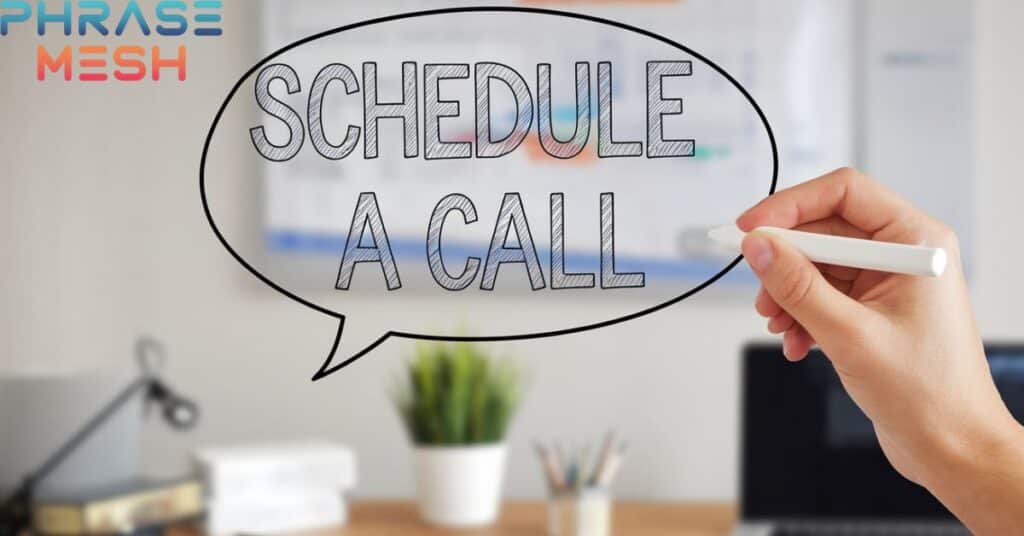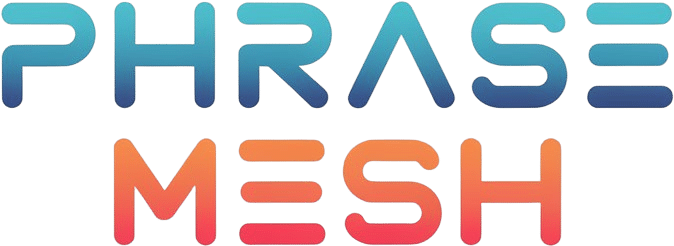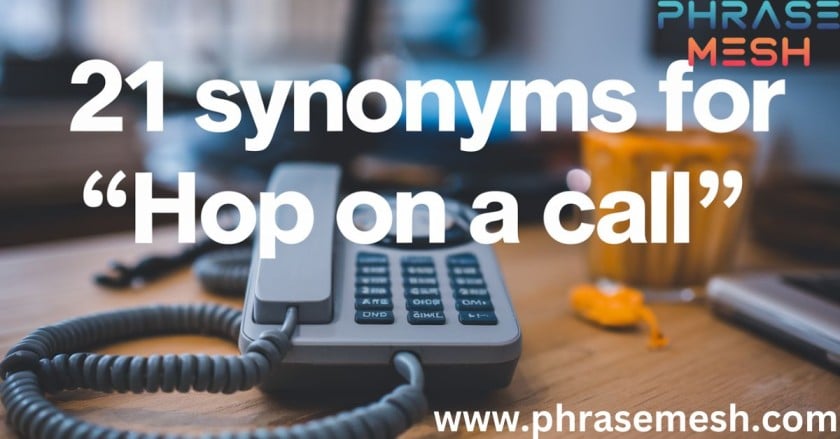In the dynamic landscape of professional communication, the phrase “hop on a call” has become a linguistic chameleon. Hop on a call has transformed from a casual utterance to a versatile communication tool that bridges professional distances.
Whether you’re a startup enthusiast or a corporate strategist, mastering the art of hop on a call can elevate your interaction game. Hop on a call isn’t just a phrase; it’s a gateway to meaningful conversations. Every time you hop on a call, you’re not just connecting voices, but building relationships.
The power of hop on a call lies in its simplicity and potential to transform professional dialogues into collaborative experiences, making every interaction count.
Is It Professional to Say “Hop on a Call”?
Hop on a call is a casual phrase that sits in a gray area of professional communication. While it’s widely used in modern business settings, especially in tech and startup environments, its appropriateness depends on the professional context and relationship dynamics.
In informal team settings or with colleagues you know well, the phrase sounds relaxed and friendly. However, in more traditional corporate environments or when communicating with senior executives, it might be perceived as too casual.
For instance, in an email to a potential client like Jennifer Thompson from Global Innovations, saying “Let’s hop on a call” could sound unprofessional, whereas “I suggest we schedule a call to discuss the project details” would be more appropriate and polished.
Pros of Using “Hop on a Call”
- Casual and Approachable communication style
- Quick and Conversational language
- Builds Rapport with younger professionals
Cons of Using “Hop on a Call”
- Might Undermine professional credibility
- Perceived Unprofessional in formal settings
- Lacks Formality for executive communications
pro tip:
Replace “hop on a call” with tailored phrases like “sync up quickly” or “connect for a moment” to match your tone and audience!
21 Other Ways to Say “Hop on a Call”
- Schedule a Call
- Jump on a Quick Chat
- Set Up a Meeting
- Dial In for a Discussion
- Arrange a Phone Call
- Participate in a Call
- Join a Discussion
- Conference In
- Connect Virtually
- Sync Up
- Huddle Up
- Pencil In a Conversation
- Loop In Virtually
- Coordinate a Check-In
- Touch Base Digitally
- Convene for a Dialogue
- Initiate a Virtual Meetup
- Propose a Strategic Huddle
- Organize a Rapid-Fire Discussion
- Facilitate a Virtual Roundtable
- Kick Off a Digital Powwow
1. Schedule a Call: The Classic Professional Approach

When you want to sound direct and organized, scheduling a call is your go-to method.
Example Email: Subject: Project Discussion – Call Request
Hi Emily,
I’d like to schedule a call this week to discuss the marketing strategy for Q3. Would Wednesday at 2 PM work for you?
Best regards, Michael
2. Jump on a Quick Chat: The Casual Professional Pivot
This phrase strikes a balance between informal and professional, perfect for team members or friendly client relationships.
Example Slack Message: Hey Sarah, can we jump on a quick chat about the design mockups? I’ve got some thoughts I want to run by you.
3. Set Up a Meeting: The Structured Communication Method
Setting up a meeting implies a more formal, structured interaction with a clear agenda.
Example Calendar Invite: Title: Q2 Performance Review Participants: Michael Rodriguez, Sarah Thompson Duration: 45 minutes
4. Dial In for a Discussion: The Technical Communication Approach
Commonly used in remote and technical environments, this phrase sounds professional and precise.
Example Team Communication: Team, let’s dial in for a discussion about the server migration project tomorrow at 10 AM EST.
5. Arrange a Phone Call: The Traditional Professional Method

This classic phrase works wonderfully in more conservative business settings.
Example Formal Email: Dear Mr. Johnson,
I would like to arrange a phone call to discuss the potential partnership between our organizations.
Sincerely, Emily Carter
6. Participate in a Call: The Collaborative Communication Style
This phrase emphasizes mutual participation and collaborative spirit.
Example Team Invite: Everyone, please participate in a call next Friday to review our quarterly objectives.
7. Join a Discussion: The Open and Inclusive Approach
Perfect for team-oriented environments that value open communication.
Example Team Chat: Hey team, want to join a discussion about our upcoming product launch?
8. Conference In: The Corporate Communication Standard
A sophisticated alternative that sounds particularly professional in corporate environments.
Example Business Communication: I’ll conference in Sarah and Michael to get their perspectives on the proposal.
9. Connect Virtually: The Modern Digital Communication Phrase
Reflects the contemporary remote work landscape.
Example LinkedIn Message: Hi Alex, would you like to connect virtually to discuss potential collaboration opportunities?
10. Sync Up: The Tech and Startup Communication Favorite

Popular in startup and technology sectors, this phrase sounds dynamic and efficient.
Example Startup Slack: Let’s sync up in 30 to discuss the sprint progress.
11. Huddle Up: The Team-Oriented Communication Method
Implies a quick, focused gathering with a sense of urgency and collaboration.
Example Team Communication: Team, let’s huddle up for 15 minutes to align on the client proposal.
12. Pencil In a Conversation: The Personable Planning Approach
This phrase adds a warm, collaborative touch to scheduling discussions.
Example Email: Hi David,
Can we pencil in a conversation next week to brainstorm our marketing strategy?
Best, Jessica
13. Loop In Virtually: The Inclusive Communication Method
Perfect for team-wide collaboration and ensuring everyone’s perspective is heard.
Example Team Message: Let’s loop in virtually to discuss the project updates and challenges.
14. Coordinate a Check-In: The Systematic Communication Style
Suggests a structured, purposeful interaction with clear intentions.
Example Professional Communication: I’d like to coordinate a check-in to review our quarterly objectives and alignment.
15. Touch Base Digitally: The Modern Networking Phrase

A contemporary approach that sounds both professional and approachable.
Example LinkedIn Message: Hi Mark, would you like to touch base digitally about potential collaboration opportunities?
16. Convene for a Dialogue: The Formal Intellectual Approach
Sounds sophisticated and intentional, ideal for academic or high-level professional settings.
Example Formal Invitation: Dear Professor Williams,
I propose we convene for a dialogue regarding the research proposal.
Respectfully, Dr. Emily Roberts
17. Initiate a Virtual Meetup: The Tech-Forward Communication
Reflects the modern digital workplace and remote collaboration trends.
Example Startup Communication: Team, let’s initiate a virtual meetup to align on our sprint goals.
18. Propose a Strategic Huddle: The Empowering Leadership Expression
Implies a focused, strategic discussion with clear objectives.
Example Executive Communication: Let’s schedule a strategic huddle to align on our market expansion plan.
19. Organize a Rapid-Fire Discussion: The High-Energy Approach
Perfect for quick, intense problem-solving scenarios.
Example Tech Team Message: Can we organize a rapid-fire discussion about the current system bottlenecks?
20. Facilitate a Virtual Roundtable: The Collaborative Leadership Method

Suggests an inclusive, democratic approach to discussion.
Example Team Leadership Communication: I’d like to facilitate a virtual roundtable to gather insights from all team members.
21. Kick Off a Digital Powwow: The Energetic Collaboration Phrase
Combines informality with professional intent, great for creative and dynamic teams.
Example Creative Team Message: Let’s kick off a digital powwow to brainstorm our next campaign concept.
Bonus Communication Strategies
- Use Technology: Leverage scheduling and communication tools
- Be Specific: Always clarify the purpose of your call
- Respect Boundaries: Provide multiple communication options
- Show Flexibility: Offer alternative meeting times
final thoughts:
Choosing the right communication approach is an art. Business language evolves constantly, and professionals must adapt. While “hop on a call” works in some settings, context is key. Understanding your audience and organizational culture helps you communicate effectively.
Ultimately, communication clarity matters most. Whether you use formal or casual language, the goal is to connect, collaborate, and convey your message efficiently. Be mindful of your tone, audience, and professional environment. Flexibility and awareness will always serve you better than rigid adherence to a single communication style.
FAQs About “Hop on a Call”:
1. Can I use “hop on a call” in business emails?
Absolutely! It adds a friendly, approachable tone. Just ensure it matches your recipient’s communication style and the email’s overall tone.
2. What does “hop on a call” mean?
It means joining a call quickly, whether for work, casual chats, or meetings. This phrase is popular in both professional and personal communication.
3. Is it okay to use “hop on a call” in formal settings?
Yes, it’s acceptable in semi-formal settings, but for strict formal environments, use alternatives like “schedule a call” or “join a meeting.”
4. What are some creative alternatives to “hop on a call”?
Try saying “have a quick discussion,” “connect over a call,” or “chat briefly.” These phrases fit both casual and professional contexts.
5. Why is “hop on a call” so commonly used?
It’s a quick, casual way to suggest a phone or video call. Its friendly tone makes it versatile for team communication and casual chats.





